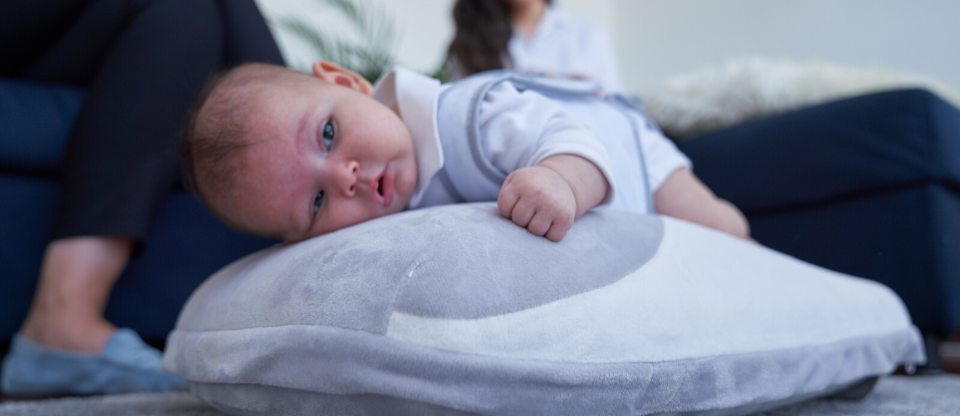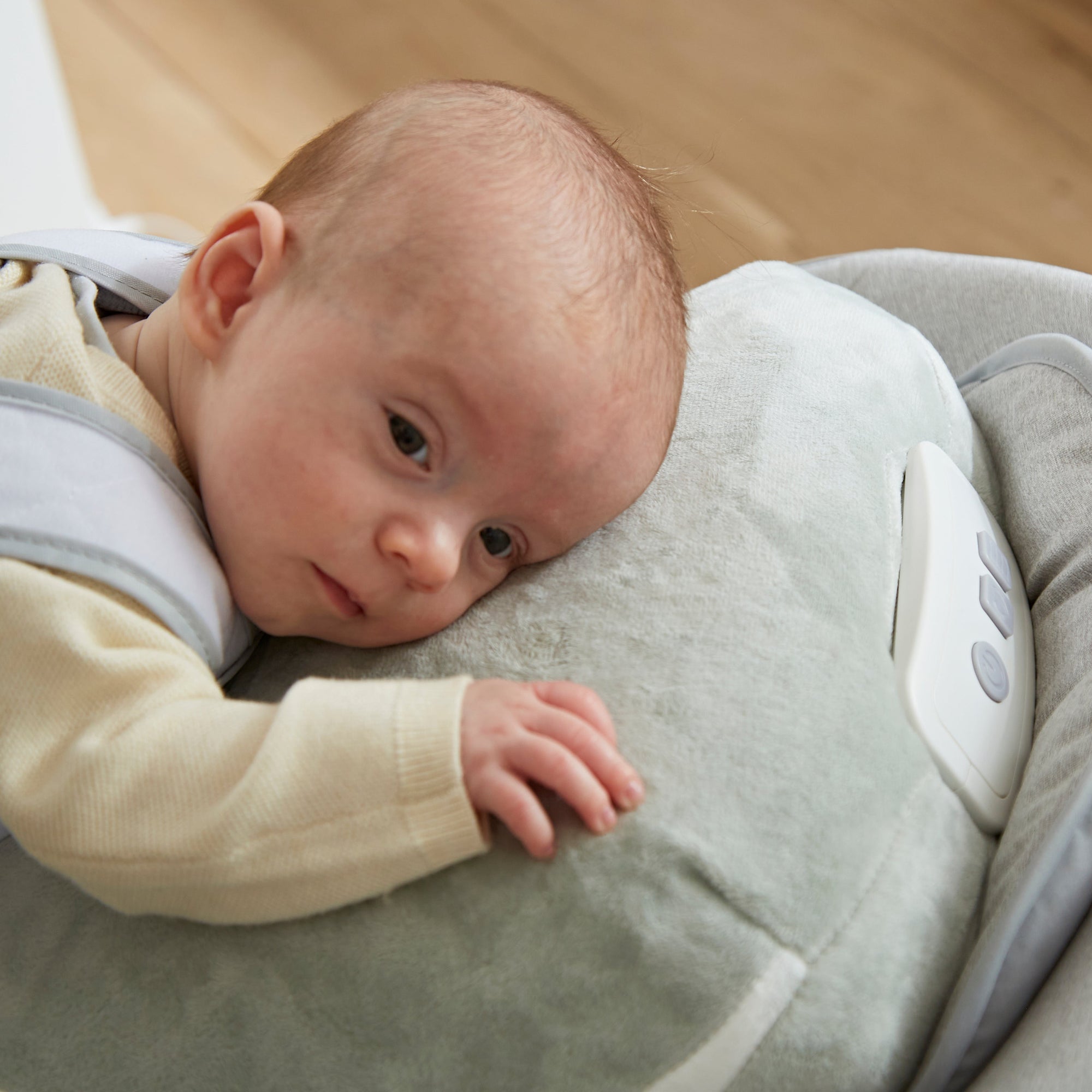Silent reflux, also called laryngopharyngeal reflux (LPR), is a type of reflux in which the contents of the stomach flow back into the larynx (the voice box), back of the throat and nasal passages. The term "silent" comes into play as the reflux is not necessarily causing any visible symptoms.
Instead of being expelled from the mouth, the regurgitated stomach material can fall back into the stomach, which can make detection difficult.
Reflux is common in babies as young as a few weeks old. If it persists beyond a year or causes negative side effects for your child, treatment may be recommended by your paediatrician.
How Do I Know My Baby Has Silent Reflux?
For around one in five babies, reflux symptoms can be seen. While gastroesophageal reflux disease (GERD) and LPR may exist together, the symptoms of silent reflux differ from those of other reflux types. Typical symptoms for babies and young children include:
- Breathing problems, such as wheezing, “noisy” breathing, or pauses in breathing
- Chronic coughing
- Spitting up
- Difficulty feeding
- Gagging
- Nasal congestion
- Chronic respiratory conditions (such as bronchitis) and ear infections
- Difficulty breathing (your child may develop asthma)
Babies with a silent reflux may not spit up, which can make identifying the cause of their distress difficult. Older children may describe something in their throat that feels like a lump, and complain about a bitter taste in their mouth. You may also note a hoarseness in your child’s voice.
What causes silent reflux?
Babies are susceptible to reflux for a variety of factors. At conception, babies have undeveloped oesophageal sphincter muscles. These are the muscles which open and close at each end of the oesophagus to allow the passage of fluid and food.
The muscles become more flexible and balanced as babies develop, keeping the contents of the stomach where they belong. This is why reflux is most often seen in younger infants who often spend a lot of time on their backs - a position that can really aggravate reflux symptoms.
Lying on their back means babies don't have the advantage of gravity to help hold any food in the stomach. A baby’s mostly liquid diet can also aggravate reflux as liquids are more easily regurgitated than solid foods.

What Can I Do To Manage Or Prevent Silent Reflux?
There are several steps you can take to help ease your baby’s reflux. The first is alteration of your diet if you are breastfeeding. This will help to minimise sensitivity to any products your child may be allergic to. The American Academy of Pediatrics (AAP) recommends two to four weeks of removing eggs and milk from your diet to see if reflux symptoms begin to improve.
Other tips include:
- Keep your newborn upright for 30 minutes after feeding.
- Burp your baby, several times throughout a feed.
- If your baby is on formula, consider switching to a hydrolyzed protein or amino acid-based formula.
- When bottle feeding, hold the bottle at an angle so that the nipple stays full of milk. This will allow your baby to take in less air. Swallowing air can cause increased intestinal pressure and reflux.
- Test out different nipples to see which one provides the finest seal around your baby's mouth.
- Give your newborn smaller amounts of food more regularly. For example, instead of feeding your newborn 4 ounces of formula or breast milk every four hours, try 2 ounces every two hours.
How To Treat Silent Reflux

If treatment is required, your baby's pediatrician may advise your newborn to take GERD drugs such as H2 blockers or proton pump inhibitors to help lower the amount of acid produced by the stomach.
The AAP also suggests using prokinetic agents. Prokinetic agents are medications that aid in the motility of the small intestine, allowing stomach contents to exit more quickly. This keeps meals from sitting in the stomach for too long.
How Can The Babocush Help With Baby Reflux?

Luckily, the babocush can help. Our innovative baby cushion helps not only reflux, but also gas and colic, all while relaxing your baby and giving new parents some much needed ‘me time’. The babocush, attached to a baby’s rocker, soothes and calms even the fussiest of babies, holding them in a comfortable and safe position while mimicking the environment of the womb. As the baby lies on his or her front, it also reduces the risk of flat-head syndrome, which has been on the increase since a campaign to lie babies on their backs. The babocush really is an invaluable addition to any household with a newborn - to learn more or to shop, you can visit the babocush website.
How long does it take for silent reflux to resolve?
Most babies outgrow silent reflux by the age of one. Many children, particularly those who are swiftly treated at home or with medical procedures, have no long-term consequences.
Read more: Baby Charlie and his silent reflux and colic
However, exposing delicate throat and nasal tissue to stomach acid on a regular basis might lead to long-term difficulties. Long-term effects of uncontrolled reflux may include recurring respiratory problems such as pneumonia, chronic laryngitis or a persistent cough.
Should I be concerned about my child’s reflux?
Baby reflux, including silent reflux, is extremely common. It is believed that up to 50% of newborns will develop reflux within the first three months of life. Most babies and young children grow out of reflux without any long-term effects on their esophagus or throat. When reflux difficulties are severe or long-term, there are a number of effective treatments available to help your child regain control of his or her digestion.
Most babies can thrive despite having silent reflux but do seek medical attention if your baby has a frequent cough, breathing difficulties (such as wheezing, labored breathing or if your baby’s lips turn blue), persistent ear pain or difficulty gaining weight.
For additional support, here are six tips for coping with baby reflux.


